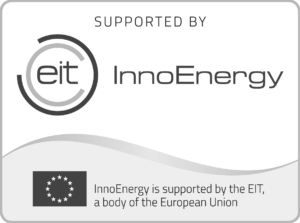01.06.2016
Quretec: High-quality data is the basis for innovative health applications
In medicine, the service provider has to deal with a large amount of health data, which can be collected through interviews or online questionnaires, laboratory results or database reports. The data must be preserved, analyzed, and interpreted. This situation has lead us to a need for a new user-friendly software solution.
In Estonia, such a solution is offered by Quretec: “Quretec’s vision is to provide the most versatile software for making structured data available for collection, organization, preservation, and analysis,” says Margus Jäger, managing director
of Quretec.
“Part of the data is standardized and enters the central eHealth system as an electronic document, part enters the registries and databases used for government statistics and research work. When there is an interbase cross-usage of data, the current direction is less manual data entry and the possibility of making more use of existing data from different sources. The cross-usage often leads to variable quality in the data, so that it is even sometimes contradictory. As a result, the data must be systematically inspected and cleansed by specialists. Good software can be of great assistance in this case,” says Jäger.
He explains that data cleansing involves detecting, identifying and correcting inaccurate records from the database. “Cleansed, structured data is a prerequisite for doing high-quality data analysis and statistics. In terms of clinical decision-making, visualised, accessible, high-quality data is becoming increasingly important for doctors,” Jäger adds.
As a solution, Queretec offers the Qure Data Management Platform, which consists of an integrated software suite for creating databases, flexibly defining web-based input forms and questionnaires, and implementing different checks, rules, and workflows. In addition, the suite also provides a data import module for loading data into the system from interconnected tables, different possibilities for integration, for example, with X-road services, a module for making ad hoc queries and outputting data, pre-defined reports for end-users, support of workflows for cleaning up inconsistent data, and possibilities for monitoring data.
According to Jäger, their competitors are primarily software enterprises offering so-called tailored solutions. “The drawback of tailored solutions is often, that the client, must request new functionality and later updating on its own initiative. It is difficult to plan the volume of orders, the client often lacks experience, and the constant need for updating and security patches can become costly,” he said. Queretec provides license maintenance service, ensuring that their clients have the latest version of the software.
The platform is adjustable for different countries and specialities
The Estonian Genome Center, founded in 2001, played an important role in the birth of Quretec, which created the first version of its software for the center: “It was necessary to develop software to collect response data for a lengthy questionnaire from hundreds of family doctors across Estonia and do it securely, in such a way that a fixed internet connection would not be necessary,” recalls Jäger. Out of this software grew an idea to provide more flexible questionnaire-defining and, thus, Quretec developed a new software platform for secure data collection. “As a result of more than 10 years of continuous development, it is possible to create complex web-based information systems and workflows using only high-level
definitions and scripting via a graphical user interface. The platform consists of different modules. It is easy to design them and they do not require programming,” says Jäger.
Today users of the Quretec solution are database owners, for example, the National Institute for Health Development, the Estonian Genome Center, Tartu University, and the Estonian Society for Infectious Diseases. The enterprise’s most rapidly developing area at the moment is clinical studies, with the main target group being the market outside of Estonia. “We have a separate team dealing with data management for clinical studies, and the software has been validated against quality requirements for clinical studies. The Qure Platform has been used in clinical studies in more than a hundred sites in seven different countries. In addition to medicine and statistics, the Qure Platform is also used in other areas, for example, as a platform for managing data in bioinformatics, chemistry, history, and biology.
The company played an important role in setting the world record. A data collection solution based on the Qure platform was developed in collaboration with Nortal for the Statistical Office to help carry out the census in 2011. In the course of this census, about 66% of the Estonian population used the web-based e-census software to provide household
and housing data, setting an unofficial world record.
In the near future, the enterprise expects to become more involved in data analysis, for which there is an ever-increasing demand. “We want to continue to be innovative and to be involved in new developments. The software platform is a good foundation for developing new innovative solutions.












